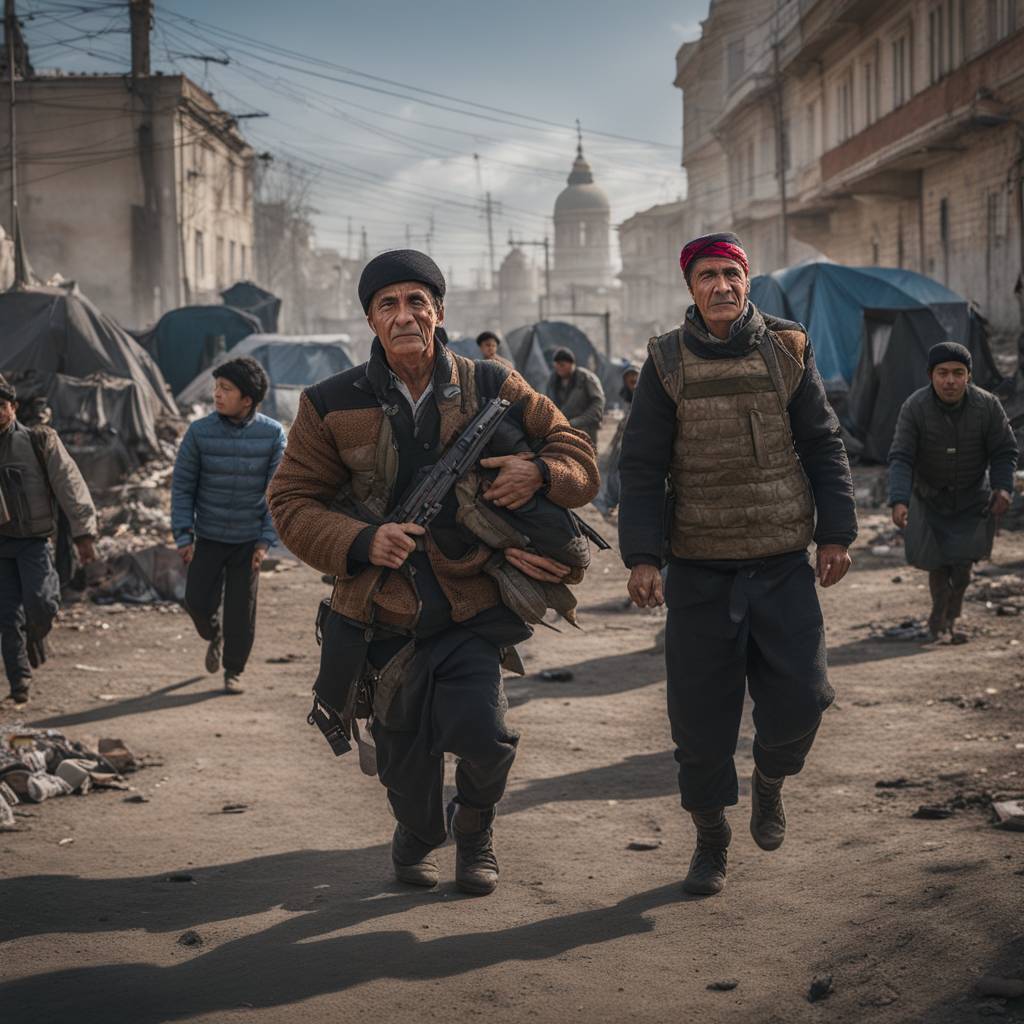Muhammad, who immigrated to Russia from Tajikistan, found a better life working as a delivery driver. However, plans to settle in Russia were upended after Tajik citizens were accused of a terrorist attack in Moscow. The resulting crackdown on migrants by Russian authorities has led to fear and uncertainty among the migrant population. Many migrants have faced harassment, deportation, and xenophobic attacks, prompting some to consider returning to their home countries.
The attack at the Moscow concert hall, which killed 145 people, has intensified anti-migrant sentiment in Russia. The crackdown on migrants has highlighted the contradiction of relying on foreign workers to support the war effort while also promoting nationalist fervor that fuels xenophobia. Migrants from Central Asian countries have become essential to Russia’s economy, filling labor shortages in various sectors, but they now face increased scrutiny and discrimination.
President Putin’s recent speech emphasized the importance of respect for Russian traditions and culture for those wishing to live in the country. The Russian demographer Igor Efremov estimated that there are millions of migrants working in Russia, primarily from Central Asian countries. These migrants perform manual labor for short periods, contributing to key industries such as construction, agriculture, and manufacturing.
Tajik migrants in Russia face unique challenges, given their status as economic migrants from one of the poorest former Soviet republics. The civil war and political instability in Tajikistan have driven many to seek opportunities in Russia, where they face exploitation and abuse due to their marginalized status. Tajiks are also vulnerable to xenophobia and discrimination, particularly in the aftermath of the concert hall attack.
The concert hall attack has shifted Russia’s migration debate toward national security concerns, potentially at the expense of the economy. Calls to restrict migration have gained traction among policymakers and conservative commentators, despite the critical role that foreign workers play in addressing labor shortages. The decline in Russia’s population and the need for workers in crucial sectors such as the military and manufacturing make foreign labor essential for the country’s stability.
As tensions and xenophobia rise in Russia, Tajik migrants are contemplating their future in the country. While some feel integrated and accepted, others face hostility and discrimination. The uncertain political and social climate has prompted many migrants to consider returning to their home countries, despite the economic opportunities in Russia. The ongoing crackdown and anti-migrant sentiment have created a challenging environment for the migrant population in Russia.








